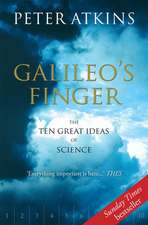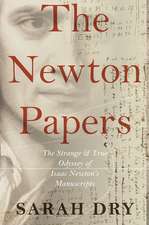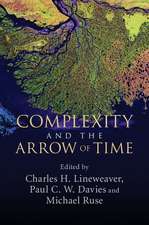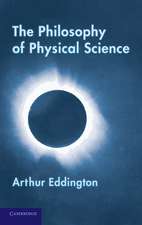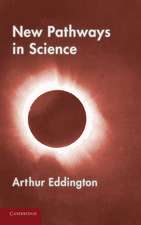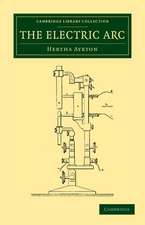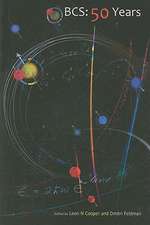Science and Human Experience: Values, Culture, and the Mind
Autor Leon N. Cooperen Limba Engleză Hardback – 27 noi 2014
Preț: 217.96 lei
Nou
Puncte Express: 327
Preț estimativ în valută:
41.72€ • 42.99$ • 35.22£
41.72€ • 42.99$ • 35.22£
Carte tipărită la comandă
Livrare economică 03-17 martie
Preluare comenzi: 021 569.72.76
Specificații
ISBN-13: 9781107043176
ISBN-10: 1107043174
Pagini: 256
Ilustrații: 33 b/w illus.
Dimensiuni: 147 x 223 x 19 mm
Greutate: 0.41 kg
Editura: Cambridge University Press
Colecția Cambridge University Press
Locul publicării:New York, United States
ISBN-10: 1107043174
Pagini: 256
Ilustrații: 33 b/w illus.
Dimensiuni: 147 x 223 x 19 mm
Greutate: 0.41 kg
Editura: Cambridge University Press
Colecția Cambridge University Press
Locul publicării:New York, United States
Cuprins
Part I. Science and Society: 1. Science and human experience; 2. Does science undermine our values?; 3. Can science serve mankind?; 4. Modern science and contemporary discomfort: metaphor and reality; 5. Faith and science; 6. Art and science; 7. Fraud in science; 8. Why study science? The keys to the cathedral; 9. Is evolution a theory? A modest proposal; 10. The silence of the second; 11. Introduction to Copenhagen; 12. The unpaid debt; Part II. Thought and Consciousness: 13. Source and limits of human intellect; 14. Neural networks; 15. Thought and mental experience: the Turing test; 16. Mind as machine: will we rubbish human experience?; 17. Memory and memories: a physicist's approach to the brain; 18. On the problem of consciousness; Part III. On the Nature and Limits of Science: 19. What is a good theory?; 20. Shall we deconstruct science?; 21. Visible and invisible in physical theory; 22. Experience and order; 23. The language of physics; 24. The structure of space; 25. Superconductivity and other insoluble problems; 26. From gravity to light and consciousness: does science have limits?
Recenzii
'As a scientist and a humanist, Cooper is well-versed in philosophy, literature, art, and the practicalities of making science serve humanity, as opposed to being in thrall to special interests. His intellectual open-mindedness and compelling prose style make Science and Human Experience a thought-provoking pleasure to read.' Peter Byrne, author of The Many Worlds of Hugh Everett III: Multiple Universes, Mutual Assured Destruction, and the Meltdown of a Nuclear Family
'This is a fascinating melange of essays on topics ranging from the question of fraud in science to Euclidean geometry and the 'neural-network' approach to brain research. Cooper's characteristic combination of lucidity and common sense had me nodding in enthusiastic agreement on just about every page.' Anthony Leggett, University of Illinois, Urbana-Champaign
'From black body radiation to brain circuitry; from Copenhagen to consciousness - this well-curated set of essays crackles with bracing insights about science, and about the world that science strives to fathom. An almost hushed voice (often with a slightly jocular tinge), marshaling volumes of data into an abruptly well-ordered, breathtakingly lucid condensate: that's Leon Cooper in a nutshell.' Richard Granger, Dartmouth College
'Science and Human Experience is a collection of essays drawn from work published over a 40-year span by that remarkable theorist-scientist Leon Cooper. And these really are essays - reasonably short, often argumentative, filled with startling insights, and written from a personal perspective about issues of great interest. Cooper's writing style is charming, witty, and accessible; the essays … [are] fun to read.' Gary S. Lynch, Cerebrum
'This is a fascinating melange of essays on topics ranging from the question of fraud in science to Euclidean geometry and the 'neural-network' approach to brain research. Cooper's characteristic combination of lucidity and common sense had me nodding in enthusiastic agreement on just about every page.' Anthony Leggett, University of Illinois, Urbana-Champaign
'From black body radiation to brain circuitry; from Copenhagen to consciousness - this well-curated set of essays crackles with bracing insights about science, and about the world that science strives to fathom. An almost hushed voice (often with a slightly jocular tinge), marshaling volumes of data into an abruptly well-ordered, breathtakingly lucid condensate: that's Leon Cooper in a nutshell.' Richard Granger, Dartmouth College
'Science and Human Experience is a collection of essays drawn from work published over a 40-year span by that remarkable theorist-scientist Leon Cooper. And these really are essays - reasonably short, often argumentative, filled with startling insights, and written from a personal perspective about issues of great interest. Cooper's writing style is charming, witty, and accessible; the essays … [are] fun to read.' Gary S. Lynch, Cerebrum
Notă biografică
Descriere
Nobel Laureate Leon N. Cooper places pressing scientific questions in the broader context of how they relate to human experience.

